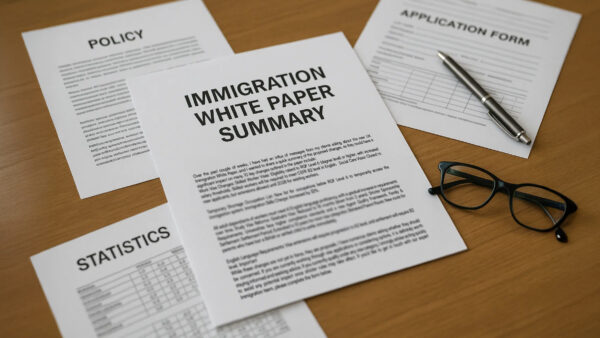Restrictive covenants are legal obligations imposed in contracts or deeds that limit the use of land or property in various ways. These covenants can affect a property’s use, and the rights of the parties involved. In addition, as they are registered on the title, and can therefore run indefinitely, they can also lead to some rather outdated and nonsensical scenarios, particularly in relation to older properties.
Matters which would have seemed completely innocuous over a hundred years ago could cause problems now. For newer properties, restrictive covenants can be designed to uphold a particular standard across a development for all residents and property owners.
What Is A Restrictive Covenant?
A restrictive covenant places certain limitations or restrictions on the use, development, or activities related to a piece of land or property. They are used to protect the interests of other property owners and/or developers.
One significant milestone in the development of restrictive covenants was the case of Tulk v. Moxhay 41 E.R. 1143 (22 December 1848). It is a landmark decision, not just in law but in the history of London, because if the Court had ruled differently, Leicester Square as we know it would not exist. Happily, (for movie premier lovers at least!) the Court recognised the enforceability of covenants that ran with the land.
The case established the principle that subsequent owners of land could be bound by restrictive covenants made by their predecessors, provided certain conditions were met.
What Makes A Restrictive Covenant Enforceable?
The following must be present for a restrictive covenant to be enforceable:
- The original parties involved must have intended the covenant to be binding and enforceable. This intention should be clear from the language used in the contract or deed.
- The covenant must relate to the land in question and significantly affect its use, value, or enjoyment.
- There must be privity of estate between the parties, which means that the covenant must “run with the land.” This ensures that subsequent owners are bound by the covenant.
- For a subsequent owner to be bound by a restrictive covenant, they must have had notice of the covenant’s existence. Notice can be actual, constructive, or imputed.
- Courts may refuse to enforce a restrictive covenant if it is found to be unreasonable or against public policy.
How Are Restrictive Covenants Applied To New Build Properties?
Restrictive covenants in new build developments often aim to maintain the aesthetics and uniformity of the development. They may include provisions that restrict property owners from making significant changes to the exterior of their homes, such as altering the facade, installing non-approved fencing, or painting the property in a way that deviates from a specified colour palette.
Property uses which are sometimes restricted in new build developments include activities such as running a business from the premises, converting the property into a multi-unit dwelling without permission, or using it for industry.
In addition, some covenants may require property owners to maintain their homes and gardens to a certain standard. This can include keeping gardens in good condition, repairing damage promptly, and maintaining the property’s overall cleanliness. Restrictions may also be placed on the construction of outbuildings, such as sheds or garages, to ensure they do not negatively impact neighbouring properties or the overall aesthetics of the development.
Will A Restrictive Covenant Affect My Sale?
When it comes to new build developments, it can be seen that restrictive covenants can be beneficial. The prohibition from changing the outside of the property, for example, ensures that an attractive environment together with uniformity is achieved whilst properties are being bought and sold.
More commonly in older properties, where the covenant is often decades old, if the covenant is considered onerous or has been breached inadvertently remedies are available.
- Indemnity Insurance: If the beneficiary of the covenant cannot be identified, obtaining indemnity insurance can provide protection for both the current owner and future buyers against potential enforcement of the covenant. This insurance covers the costs associated with dealing with the covenant.
- Negotiating a Release or Variation: If the beneficiary of the covenant is known, negotiations can be initiated to secure a release or variation of the covenant. This involves altering the covenant’s terms or removing it entirely.
- Lands Tribunal Challenge: If you believe that the restrictive covenant no longer serves a practical purpose and meets the criteria outlined in section 84 of the Law of Property Act 1925, you have the option to challenge it through the Lands Tribunal. If successful, this process can lead to the removal or modification of the covenant, simplifying the property’s sale.
During the sale process, it is crucial to collaborate closely with a solicitor well-versed in property law who can provide expert guidance, whether it involves obtaining indemnity insurance, negotiating with the beneficiary, or pursuing legal action in the Lands Tribunal to remove or modify the covenant.
How Are Restrictive Covenants Enforced?
In recent years, the Courts have been inclined to take a more flexible approach to restrictive covenants, particularly when considering their reasonableness. The test of reasonableness often involves weighing the competing interests of the parties involved, balancing the benefit gained by the party seeking enforcement against the detriment suffered by the party in breach. Overly, restrictive covenants can hinder economic development and impede progress. Consequently, the Courts may refuse to enforce covenants that are deemed unreasonable or contrary to public policy.
The ancient law of restrictive covenants must strike a balance between protecting property rights and facilitating development and progress. Developers and property owners should take expert legal advice from a Residential Property Law Solicitor if they have any concerns regarding implementing or breaching restrictive covenants.
To discuss any of the points raised in this article, please contact Meera Malde or fill in the form below.









